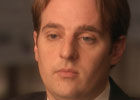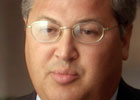When Jack Goldsmith took over the Office of Legal Counsel (OLC) in 2003, he reviewed and ultimately withdrew some of OLC's legal opinions underpinning the war on terror -- including the rationales for the administration's interrogation policies and its warrantless wiretapping program. His actions led to confrontations with the Bush/Cheney legal team and ultimately triggered a revolt inside the Justice Department itself.
Charlie Savage
Author, Takeover: The Return of the Imperial Presidency and the Subversion of American Democracy
In 2003 a lot of the original Bush-Cheney legal team leaves. [OLC head] Jay Bybee is confirmed as a judge and goes off. John Yoo wants to be promoted as the assistant attorney general for the Office of Legal Counsel, and the White House wants him to be in that job, but [then-Attorney General] John Ashcroft blocks him. ...
So Yoo, denied this promotion, leaves as well. He goes back to his tenured law professorship at Berkeley. Tim Flanigan, who was the controlling deputy White House counsel for the first couple of years, he's got 14 children; he needs more money; he goes off and becomes the general counsel at Tyco. A number of other key-position players from the first generation of the Bush-Cheney legal team are moving on in 2003. [Vice presidential adviser David] Addington stays, most importantly.
When these people are replaced, what happened was that, inadvertently, the Bush administration allowed several people who are conservative Republicans, but more mainstream thinkers about executive power, into their ranks, into key positions of responsibility.
How does that happen? Aren't there ways of vetting?
Well, some of it is guesswork, right? You can never know what someone is going to do. In the case of Jack Goldsmith, who's the most important of these new faces, he probably looked a lot like John Yoo to them, because he's a University of Chicago law professor; he's a conservative; he had co-written papers with John Yoo, saying that international human rights treaties don't apply to the United States unless Congress separately passes a law embedding those restrictions in U.S. law, undermining the power of treatises. …
Just looking at him, he looks like he's probably going to be a team player. But it was a miscalculation, it turns out, because even though Jack Goldsmith is very concerned about international treaties and their ability to restrict state sovereignty, he turns out to be much more mainstream when it comes to the ability of Congress to pass a law that has to be obeyed even by the president, domestic law.
Jack Goldsmith undertakes a review of all these highly classified secret memos that have been written since 9/11, that discuss a president's commander-in-chief power, and he starts to say, "This is wrong, and this is wrong, and this is wrong," and starts to replace them. He notifies Haynes at the Pentagon that it can no longer rely on the interrogation memo that Yoo had drafted for them in December of 2003. And he'll later, after Abu Ghraib, replace the CIA's interrogation memo which allows the president to bypass torture laws. …
What does it mean when he calls Haynes and says he can no longer rely on the OLC opinion?
If you are relying on an Office of Legal Counsel opinion and the opinion says you can do something, you cannot be prosecuted for criminal violations that arise from doing that thing, because you relied, in good faith, on what the Office of Legal Counsel told you the law was. When the Office of Legal Counsel withdraws its support for a memo, that means that you are now exposed to prosecution for violating laws again. It's an extraordinary gesture to yank one of these things out from the national security apparatus in the midst of a war, something that would not be done lightly. ...
Does your reporting indicate how Addington reacted?
He's angry; he's furious. Then what Goldsmith did next made him even more outraged, which is to say that Goldsmith looked at the memo that provided legal cover for the warrantless surveillance program, ... and he said: "I don't think this is legal either. This violates the rule of law."
He went to Jim Comey, who's the new deputy attorney general -- another one of these new faces that came in and replaced a more hard-line figure -- and Jim Comey agreed, and they went to John Ashcroft. And according to Jim Comey, Ashcroft himself agreed that this violated the rule of law. ...
Jack Goldsmith
Assistant attorney general, Office of Legal Counsel, 2003-'04
[What happened at the hospital?]
It was Wednesday, March 10, I believe. I was at home. It was the evening, about 8:00. I was having dinner with my wife. I got a call from the Justice Department command center, which is a 24-hour communications center in the Justice Department through which all top Justice Department officials can be reached at all times, ... telling me to get to the hospital as quickly as possible, where I knew that Attorney General Ashcroft was in intensive care.
So I rushed to the hospital, double-parked, ran up the stairs, reached the wing of intensive care where he was being held. Then very soon after I got there, Jim Comey and I and [OLC attorney] Patrick Philbin went into the attorney general's hospital room. And in the room was the attorney general and Mrs. Ashcroft. Mrs. Ashcroft was standing behind the attorney general.
He looked terrible. He looked just absolutely dreadful. He had lost a lot of weight since the last time I'd seen him a couple of weeks ago. He had tubes going in and out of him. He looked ashen, and I actually thought he looked near death. ... I was taken aback by how bad he looked.
Soon after Philbin, Comey and I entered the room, in walked Alberto Gonzales, the White House counsel, and Andrew Card, the president's chief of staff. There were some very brief pleasantries about the attorney general's health. Judge Gonzales had an envelope in his hand, and it became apparent that he was there to ask the attorney general to authorize this program that it was known that I and Jim Comey did not think the Department of Justice could authorize.
Gonzales spoke very briefly, and then, in one of the most extraordinary events I've ever seen in my life, Attorney General Ashcroft kind of lifted himself -- he arose from the bed, lifted himself up and gave about a two- or three-minute speech or talk, addressed to Gonzales and Card in which he basically -- I can't get into the details, but he showed enormous, unbelievable clarity about what the issues were and what was going on, and he explained why he also would not approve the program. He read them a bit of the riot act, and then at the end of all this he said, "And in any event, I'm not the attorney general now; Jim Comey is," because Jim Comey was the acting attorney general.
And with that extraordinary performance -- and it was just one of the most amazing things I'd ever seen in my life, because he went from seeming near death to having this amazing moment of clarity -- he just again receded into the bed. I really worried at that point that he was going to expire. It looked like he gave it the last of his energy. It was an intense, unbelievable scene. Gonzales and Card quickly left, and that was the end of it. …
Were the stakes high?
The stakes were enormously high. ... That's why everyone felt the need to be as aggressive as possible. The president would be responsible for another attack, and no excuse would justify the next attack. The White House understood this. That's why they took every step they could to stop another attack from happening. …
In the immediate aftermath of this event, there's the threat at some moment of rather large-scale resignations. What of that, if any, do you know either firsthand or by people telling you about it?
I was not in the White House on Friday morning, March 12, when there were these meetings, according to Comey, in which he ... and [FBI Director Robert] Mueller had direction from the president to do what the Justice Department thought was the right thing to do. ... I learned about them as soon as Jim Comey came back to the Justice Department.
He sat in the office and said, "Here's what happened"?
I actually got a very cryptic e-mail from him, I believe, that obviously didn't reveal classified information, but that basically said something extraordinary has happened. And we had a meeting soon after he got back to the Justice Department. ...
At that moment, I had drafted my resignation letter and was prepared to resign. I was sure I was going to resign that day. It was inconceivable to me, based on what had happened the last two days, that I wouldn't resign. ...
What stopped you?
... David Ayres, who was the attorney general's chief of staff, asked me not to for what I thought was a very good reason: He said that you should wait until the attorney general is well enough to decide whether he himself wants to resign, because it's just appropriate to let him have the first shot. He didn't say this, but it's the way I took it. You don't want to make it seem like the attorney general is following your resignation or someone else's resignation. ...
That, combined with this change of heart by the president, is what caused the delay in the resignations over the weekend. At that point it seemed like the Justice Department's legal views had prevailed, so perhaps the reasons for resigning had dissipated. I have to say that I was still considering resigning for a lot of reasons. Unfortunately I can't get into them.
But the last reason I didn't resign in March of 2004 was that I worried that if I resigned after everything that had happened, the top might blow off the whole thing and it might leak to the press, and I was afraid there would be this national security leak. For all those reasons I decided to carry on. ...
Ron Suskind
Author, The One Percent Doctrine
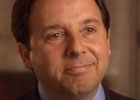
When Mueller comes in [and threatens to resign], that's what changes everything. Bush views Mueller as a warrior in the war on terror just like Bush and Cheney are. The rest of them he sees as lawyers, you know, guys who watch the battle. …
So when Mueller says, "This is about rule of law and Mr. President, I'll have to resign if you don't make the right choice here," that finally stops Bush because Mueller's got credibility that none of the other lawyers do.
So how does this affect the White House, Addington and Cheney? What do they do?
In a way, the lawyers from Justice win a battle here, but ultimately lose much of the war. After this moment with all these lawyers threatening resignation … with Bush stopping on a dime to say, "Okay, fine then," you'd think that that would be that. But that misreads Dick Cheney and David Addington and Team Cheney. Their view is that: "Well, alright. That's a battle we lost. But we're much more clear-eyed as to what the war's about and where it needs to be, where we need to end up. And so after all the noise and the sound and fury fades we'll get back at it."
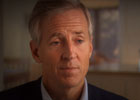
We think of the Department of Justice and the FBI as being parts of the executive branch and part of the administration. They are and they're not. Lawyers who work there feel that they have an independent duty, obligation to the law, which is even greater than their obligation to the president. And sometimes it's a conflicting obligation.
This has come up through history. During Watergate, the president wanted to fire the special prosecutor. The attorney general of the United States, Elliot Richardson, refused and quit. He resigned himself and his number two, Bill Ruckelshaus, quit. Finally they got the solicitor general, Bob Bork, to fire the special prosecutor. But the loyalty of the attorney general to the rule of law was greater than his loyalty to the president, and so he was out.
Every once in a while you get these confrontations, and on this night in March 2004, you had this kind of confrontation where you had these very smart, loyal lawyers having to choose between their loyalty to the president and their loyalty to the law.
Is this a defeat? Or does this defeat turn into victory?
In times of crisis, the pendulum swings. And the first reaction is often to give the president a lot of power. This is true in wartime -- Pearl Harbor, Civil War, you name it. After 9/11, the president got a lot of power and he used it. But inevitably, the pendulum swings back and the rule of law does reassert itself. It's just a question of how that works itself out.
In this case, it was a small, brave group of government lawyers, mostly in the Justice Department, who began to push back, and in a way that gave courage to others. The courts were beginning to push back a little bit. Judges had given a great deal of license to the administration early in the war on terror. But by 2004, '05, '06, you can see judicial pushback.
Bruce Fein
Associate deputy attorney general, 1981-'83
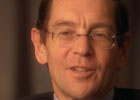
I wouldn't style it the 18 Brumaire, what those who know the French Revolution would call a true counterrevolution. Certainly I think it's laudatory that you had some people say, "You know, this is going too far." But we don't know exactly what it was they thought was going too far because nobody stood up like Elliot Richardson in Watergate and said, "I resign unless you go along with this." And moreover, the program continued after the protest.
I suspect they may have begun intercepting both domestic-to-domestic calling as well as those that had an international point to it, and then were able, by this protest, to scale back, although we don't know exactly how much it was scaled back. Jim Comey, who was the deputy, has given some testimony, said that he scaled it back somewhat, but he's never explained how, after this fateful, if you will, James Bond-like meeting in the hospital with the attorney general and Alberto Gonzales and Andrew Card wanting to overrule his deputy. …
What do you make of that?
I'm baffled. I'm not baffled at the crassness of the White House trying to take an ill man and hammer him into approving something that's constitutionally dubious at a moment of weakness. …
But what baffles me is I don't know what the Justice Department thought they did that solved their qualms about what was going on. Because after that meeting, we know the National Security Agency continued on, as they do to this very moment, operating outside the Foreign Intelligence Surveillance Act. They've conceded that. …
I've written a piece called "The Comey Conundrum," which is, what is it? It looks like they're the heroes over there, but hey, what did they do that they think satisfied the Constitution? Because we know that it certainly didn't satisfy the statute, and in my judgment to claim that the statute is unconstitutional is a frivolous argument.
Martin Lederman
Attorney adviser, Office of Legal Counsel, 1994-'02
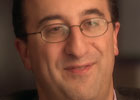
Any idea what they did to satisfy these fellows after the threat of mass resignation?
This is really speculation, but it appears increasingly likely that it has something to do with the breadth of the surveillance program. The program, from March 2004 until January 2007 when the program was terminated, it was said to be limited in two respects. One was that, in theory, at least one party to each communication was overseas. There were no purely domestic-to-domestic communications being intercepted.
Secondly, at least one party to the communication was suspected of being a member of Al Qaeda, affiliated with Al Qaeda, or affiliated with an affiliated group of Al Qaeda. So those are the two criteria that the administration had said were in place in the post-2003 program.
It appears increasingly likely that before March 2004 it was probably the case either that they were surveilling purely domestic-to-domestic communications and/or communications that did not involve any agent of Al Qaeda or related organizations at all, but ordinary Americans.
I don't want to suggest that the program that was approved in March 2004 was lawful. I don't think it was. But apparently, Assistant Attorney General Goldsmith was able to sign off on the program when it was limited in these new respects in March 2004.
In whatever those new respects were?
In whatever those new respects are. I think the scope of it was narrowed in some ways that we're not quite sure of.
home . introduction . watch online . interviews . themes . join the discussion
producer's chat . readings & links . site map . dvd & transcript . press reaction
teacher's guide . credits . privacy policy . journalistic guidelines . FRONTLINE series home . wgbh . pbs
posted october 16, 2007
FRONTLINE is a registered trademark of wgbh educational foundation.
main photograph © corbis, all rights reserved
web site copyright WGBH educational foundation
